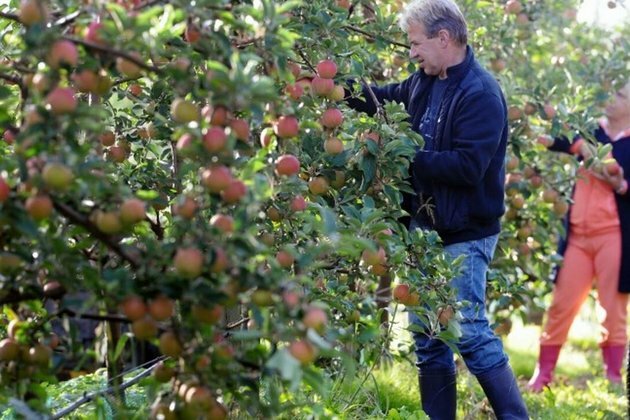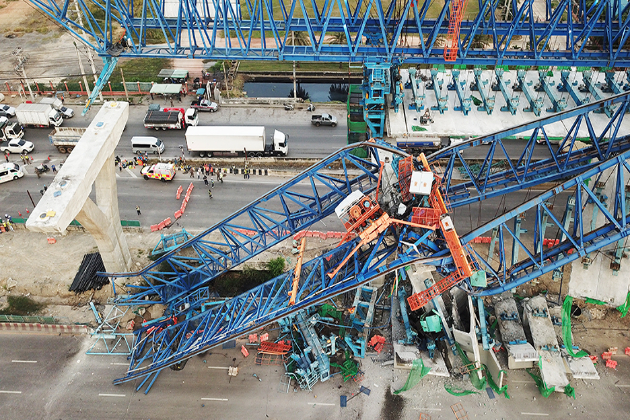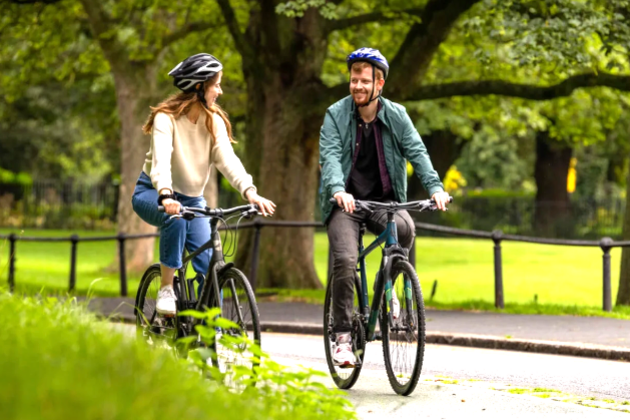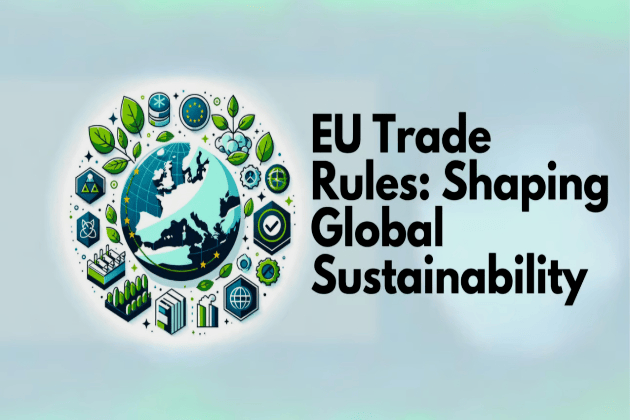Study finds rise in pesticides in European fruit and vegetables
RFI
26 May 2022, 14:46 GMT+10

French fruits and vegetables have increased amounts of pesticides over the past decade, a study by an NGO has found. It shows a continuous upward trend in the "contamination" of European fruits, despite the EU's goals to decrease use of the most dangerous products.
"Consumers eating fruits or vegetables produced in the European Union are increasingly exposed to a cocktail of the worst pesticides," the NGO Pesticide Action Network (PAN) Europe wrote in its report, 'Forbidden Fruit', published Tuesday.
"A growing number of products tested every year are found to be contaminated."
Since 2011, EU member states should have been encouraging producers to limit the use of pesticides, and the EU said in 2020 that it would reduce the use of the most dangerous substances by 50 percent by 2030.
However, PAN says that despite EU directives and laws passed in member states, consumers are ingesting more - not fewer - pesticides.
Pesticides on the rise
"Paradoxically, consumers are less and less protected, at a time when the EU is committed to delivering a production and consumption system that is safer for human health, animal health and the environment," the authors of the report wrote.
The European Commission reports that pesticide use went down 8 percent in 2018 and 5 percent in 2019, compared to a baseline between 2015 and 2017.
The data is based on the "quantities of chemical active substances placed on the market", which PAN says does not take into account what is actually on what is being consumed.
French study looks into the pesticide risk of people living near vineyards
PAN looked at 97,170 samples of fruits and 113,431 of vegetables produced in Europe in the eight years from 2011 to 2019, and found "a continuous upward trend" of pesticide residue, from 14 percent in 2011 to 21 percent in 2019.
France is in the top three of countries that use the most pesticides, according to PAN, with 22 percent of its products contaminated. Only Belgium and Ireland have more, with 34 percent and 26 percent, respectively.
The study shows that "the use of the most dangerous pesticides in Europe is in fact rising, not falling," writes the report. "Laws are being ignored and consumers are being exposed to a rising tide of chemical exposure."
Fruits most contaminated
Fruits are more prone to drawing insects and illnesses, and so have more traces of pesticides than vegetables.
The fruit with the "most spectacular increase" of pesticides has been kiwi, according to PAN campaign officer Salome Roynel.
"Kiwis were almost free of these substances in 2011, and today 30 percent are contaminated," she told a press briefing on Tuesday.
European fruits and vegetables with the most pesticides:
Fruits:
blackberries (51%) peaches (45%) strawberries (38%) cherries (35%) apricots (35%)
Vegetables:
celery (50%) celeriac (45%) kale (31%) endive (28%) Brussels sprouts (26%) Ban the most dangerous substances
The group is calling on an immediate end on the use of the 12 most toxic pesticides, called Candidates for Substitution, including Tebuconazole, a fungicide that is likely to harm foetal development, and is linked to birth defects and miscarriage.
The chemical was found in cherries from Spain, Greece and France in 2019, among others.
Other pesticides have been linked to the risk of developing cancers, heart problems and other serious illnesses, for both consumers, and the farmers who work with them.
The group is calling on an immediate end on the use of the 12 most toxic pesticides, called Candidates for Substitution, and has called on the European Commission to enforce its existing laws on finding less toxic substances or implementing non-chemical alternatives, like crop rotation or mechanical weeding.
Research shows carcinogenic pesticides present in French drinking water
But these alternatives "are constantly dismissed", often "on the demands from the agri-chemical industry".
In 2020, France moved to allow sugar beet growers to use neonicotinoids, banned in 2018, to avoid losing half their crops to a virus transmitted by aphids. Neonicotinoids are found to have a harmful effect on pollinators
PAN warns that putting off banning pesticides runs the risk of exacerbating the "pesticide treadmill", where farmers use increasing amounts of chemicals to fight against pests, which evolve their immunity, and therefore require more substances to fight them off.
"Without an adequate response to break down this resistance spiral, the observed trends are very likely to keep rising."
 Share
Share
 Tweet
Tweet
 Share
Share
 Flip
Flip
 Email
Email
Watch latest videos
Subscribe and Follow
Get a daily dose of Irish Sun news through our daily email, its complimentary and keeps you fully up to date with world and business news as well.
News RELEASES
Publish news of your business, community or sports group, personnel appointments, major event and more by submitting a news release to Irish Sun.
More InformationInternational
SectionRare boost for South Korea as births rise after nearly a decade
SEOUL, South Korea: For the first time in nine years, South Korea recorded a rise in births, offering a rare positive sign in the country's...
US overdose deaths drop 24% to 87,000 in one year
WASHINGTON, D.C.: Nearly 87,000 Americans died from drug overdoses in the 12 months ending September 2024, a 24 percent drop from the...
US dockworkers approve six-year contract, securing major pay hikes
NORTH BERGEN, New Jersey: More than 45,000 U.S. dockworkers have approved a new six-year contract, securing higher wages and preventing...
DOJ: Woman charged for trying to defraud Elvis Presley’s family
WASHINGTON, D.C.: A Missouri woman admitted to a scheme to cheat Elvis Presley's family out of millions and take control of Graceland,...
Tragic accident at South Korean highway site kills 4, injures 6
ANSEONG, South Korea: A tragic accident at a highway construction site in Anseong, South Korea, claimed the lives of at least four...
Taiwan probes Chinese-crewed ship for undersea cable damage
TAIPEI, Taiwan: Taiwanese authorities are probing a Chinese-crewed cargo ship suspected of damaging an undersea communications cable...
Europe
SectionDublin opens 5.5 million euro cycle track to boost city-center safety
DUBLIN, Ireland: Dublin has unveiled a new 5.5 million euro cycle track along the south quays, enhancing safety and accessibility for...
French warships join Philippines for South China Sea Drills
ABOARD THE CHARLES DE GAULLE, Philippines: France's nuclear-powered aircraft carrier and its warships arrived in the Philippines over...
Dublin ranked 2nd most expensive for apartment construction in Europe
DUBLIN, Ireland: Dublin has been ranked as the second most expensive city for apartment construction among ten major European locations,...
Major European summit planned in Ireland next year
DUBLIN, Ireland: Ireland is positioning itself to host a high-profile gathering of European leaders next year, with Tanaiste Simon...
EC to ease sustainability rules to boost business competitiveness
BRUSSELS/LONDON: The European Commission is preparing to ease sustainability reporting requirements for businesses as part of a broader...
Ireland’s average rents went up by 5.7% in 2024, report says
DUBLIN, Ireland: Ireland's rental market continued to tighten in 2024, with average rents rising by 5.7 percent over the year, according...













